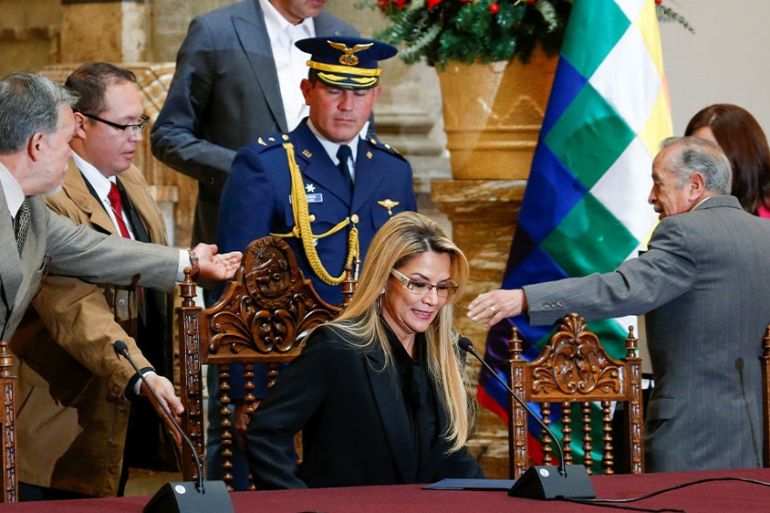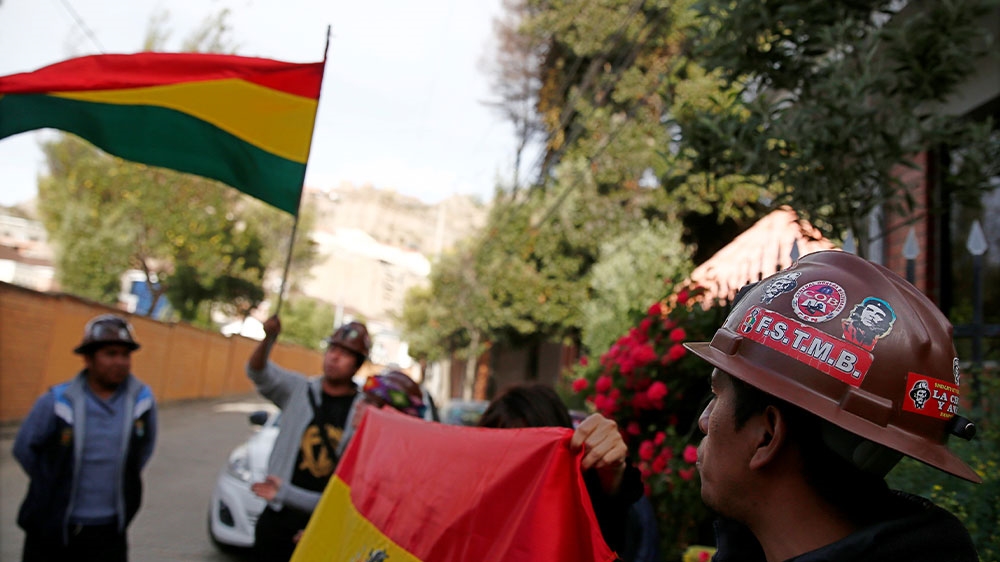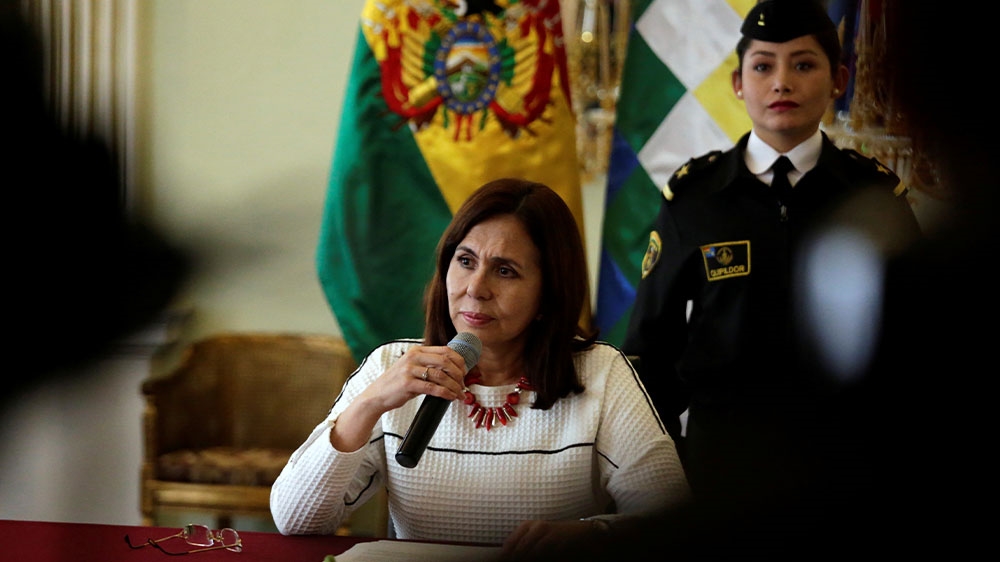Bolivia’s spat with Spain, Mexico deepens over Morales’s allies
Countries expel diplomatic staff in tit-for-tat moves as Morales’s ex-officials seek refuge in Mexican embassy.

Spain will expel three Bolivian diplomatic staff from Madrid in a tit-for-tat move after Bolivia’s interim government on Monday asked two Spanish diplomats, as well as the Mexican ambassador, to leave the country, the foreign ministry said.
The Mexican embassy in La Paz is at the centre of a diplomatic row after it sheltered nine or more officials from ex-Bolivian President Evo Morales’s former government.
Keep reading
list of 3 itemsBolivia prosecutors order arrest of ex-President Evo Morales
Bolivia after Morales: Indigenous communities fear setbacks
In the Bolivian city last week, diplomats said Bolivian authorities had harassed and intimidated Mexican diplomatic staff and impeded the departure of Spanish officials visiting its embassy, where Morales’s allies are holed up seeking refuge.
On Monday, Bolivia’s interim President Jeanine Anez said Mexican Ambassador Maria Teresa Mercado had been given 72 hours to leave the country.
The acting Bolivian government has initiated criminal charges against Morales’s allies for sedition, “terrorism” and electoral fraud and has refused to allow them safe passage out of the country.
“A serious violation has been committed against Bolivian sovereignty and democracy, which must be respected,” Anez said.

Anez took power last month after Morales resigned and fled to Mexico City following a presidential election that the Organization of American States said was rigged in his favour.
Morales’s acceptance of an offer of political asylum from the left-wing government of Mexican President Andres Manuel Lopez Obrador strained ties with Anez, an opponent of Morales.
On Friday, Mexico’s ambassador eventually made contact with Bolivia’s foreign ministry, which urged the Spanish diplomats to exit the premises and walk back to their cars, but they refused to do so without their security details. In the end, the two diplomats were collected by a car sent by the Bolivian foreign ministry more than an hour later, the Mexican embassy said.
Bolivia’s Foreign Minister Karen Longaric told a news conference the Spanish diplomats were accompanied on arrival by men with their faces covered trying to enter the residence surreptitiously.

As diplomatic personnel are not allowed to conceal their identities, police stopped the masked men going in, she said.
“There was an evident threat to the security of the Mexican mission,” she said, adding that she would lodge an official protest with Spain, the European Union and the United Nations.
The Mexican statement did not mention the masked men.
Spain’s Ministry of Foreign Affairs said it would open an investigation into the incident.
According to the Bolivian government, a former senior aide to Morales, Juan Ramon Quintana, is among the nine people who have taken asylum in the Mexican embassy. Bolivia’s government has not named all of the nine inside.

Those who have been identified, including Quintana, are allies of Morales wanted by the government.
When asked about the dispute on Friday at a regular news briefing, Mexico’s President Lopez Obrador said: “The right of asylum must be guaranteed.”
Morales left Mexico this month and is now in Argentina.
According to Mexico’s government, Bolivia has issued arrest warrants for at least four of the people inside its embassy.
On Thursday, Mexico said it was asking the International Court of Justice to mediate in the dispute.